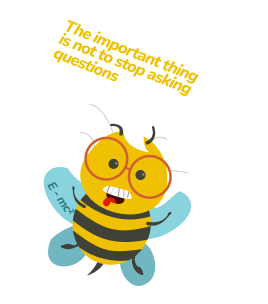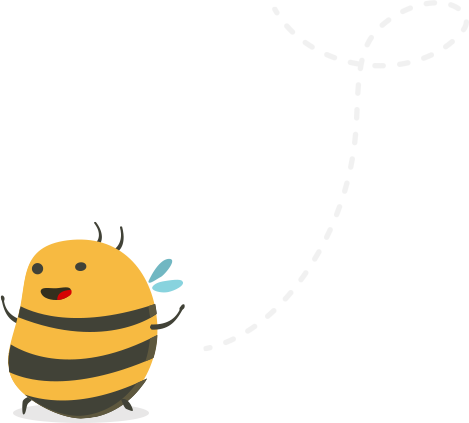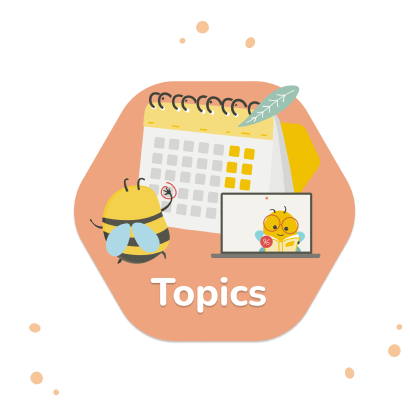Preparing for a user interview is not an easy task, and so is writing the user interview questions. Good questions are the driving force behind your interview and directly influence the amount of actionable insights you’ll be able to collect.
Let’s take a deeper dive into the art of crafting good user interview questions, see what types of questions are out there, and how to ask them strategically throughout the interview.
For a quick topic overview check out our video guide:
Types of UX research questions

The first step in designing good user interview questions is understanding their different types. Most questions fall into three main categories: descriptive, comparative, and causal.
Here’s a breakdown of each type, along with examples of questions.
Descriptive
Descriptive questions aim to provide a better understanding of the current state of a system or user behavior. They help to gather detailed information about what is happening without trying to understand the context behind such behavior yet.
Here are some examples of descriptive research questions:
- “Can you describe a typical day using our app?”
- “What features do you use most frequently, and why?”
Comparative
Comparative questions focus on evaluating the differences or similarities between two or more design variations. They are useful when you want to compare different designs, features, or user groups to determine which performs better.
Here are some examples of comparative research questions:
- “How does your experience with our app compare to your experience with similar apps?”
- “Which version of our interface do you find easier to use, and why?”
Causal
Causal questions seek to uncover the reasons behind user behavior. These questions help to identify the factors that influence user actions and the outcomes of specific interactions.
Here are some examples of causal research questions:
- “What specific feature encouraged you to upgrade to a premium account?”
- “How did the introduction of push notifications affect your engagement with the app?”
Question type | Purpose | Examples |
Descriptive | Understand the user’s experiences, behaviors, and attitudes | > Can you describe a typical day using our app? > What features do you use most frequently, and why? |
Comparative | Explore differences or preferences between options | > How does your experience with our app compare to similar apps? > Which version of our interface do you find easier to use, and why? |
Causal | Uncover reasons behind user behaviors and decisions | > What specific feature encouraged you to upgrade to a premium account? |
Now let’s get a bit more specific with the types of user interview questions, and see what are all the questions you can ask depending on the part of the interview you’re in, as well as the information you’re looking to uncover.
Opening questions
Good opening questions will help you start the interview on the right note and set the tone for the entire conversation. These questions are designed to be broad and non-threatening, allowing users to feel comfortable and open up about their experiences. Starting with opening questions can lead to more honest and insightful responses throughout the interview.
Opening questions usually ask about the daily routines of your users, the problem that your product is solving for them, their thoughts and opinions about your product if they’ve used it before.
Here are some great examples of the opening questions for user interviews:
- Can you tell me a bit about your typical day?
- How do you currently go about [completing a specific task/solving a problem]?
- What devices do you usually use to access [the product], and in what contexts?
- Can you walk me through the last time you used [the product], step by step?
- Can you describe a situation where [the product] helped you achieve a goal, and what made it effective?
- What was your first impression when you started using [the product], and how has that changed over time?
Familiarity scale questions
Familiarity scale questions are there to help you understand the level of user familiarity with your product, as well as the products of your competitors. competitive products. They also provide valuable insights into the user’s experience level, which can significantly influence their feedback and interaction with the product.
Familiarity questions will help you identify if the user’s suggestions and pain points stem from a lack of familiarity or genuine usability issues.
Here are some great examples of the familiarity scale questions for user interviews:
- On a scale of 1 to 5, how familiar are you with our product?
- On a scale of 1 to 5, how familiar are you with similar products?
- On a scale of 1 to 5, how comfortable are you using our product’s advanced features?
- On a scale of 1 to 5, how well do you know the main competitors of our product?
User behavior questions
User behavior questions are integral to understanding not just what users do with your product, but also why they do it. These questions delve into the specifics of user interactions, uncovering patterns, motivations, and pain points.
The goal of user behavior questions is to help you understand how users interact with the product and it’s specific features, where they encounter issues or get confused.
Here are some great examples of the user behavior questions for user interviews:
- Can you walk me through a typical session using [the product]?
- What features do you use most frequently, and why?
- Are there any tasks you find difficult or frustrating when using [the product]?
- How do you usually [accomplish specific task] with [the product]?
- Are there any features you wish [the product] had to make your tasks easier?
- How often do you use [the product], and in what situations?
User experience questions
User experience (UX) questions are those designed for understanding the emotional responses and subjective perceptions users have while interacting with a product. They help to uncover what aspects of the product users enjoy, as well as what causes the most frustration.
Including UX questions in user interviews is essential for gaining insights into the overall satisfaction and emotional impact of the product.
Here are some great examples of the user experience questions for user interviews:
- How do you feel when using [the product]?
- What causes the most frustration when using [the product]?
- Can you describe a time when you felt particularly satisfied or dissatisfied while using [the product]?
- How likely are you to recommend this product to others, and why?
- On a scale of 1 to 7, with 1 being extremely difficult and 7 being extremely easy, how would you rate the navigation of this product?
JTBD questions
JTBD (Jobs to Be Done) questions are designed to to understand users’ motivations for using the product or behaving a particular way. In other words, they are aiming to analyze which “jobs” users want to complete.
Including JTBD questions in user interviews ensures that product development aligns with actual user needs, leading to more relevant and effective solutions.
Here are some great examples of JTBD questions for user interviews:
- What main goal are you trying to achieve when you use [the product]?
- Can you describe a situation where [the product] helped you solve a problem?
- What tasks do you use [the product] for the most, and why?
- Can you walk me through a recent experience where you struggled to use [the product]? What were you trying to achieve?
- What alternatives do you consider or use to accomplish the same tasks as [the product]?
Opinion questions
Opinion questions are designed to analyze what opinions users hold regarding something, for example, what they consider useful on a webpage. These questions help to understand user preferences and attitudes, as well as gain deeper insights into how users perceive your product. Including opinion questions in user interviews ensures that you capture subjective insights that are essential for creating a user-centered designs.
Here are some great examples of opinion questions for user interviews:
- What do you find most useful about this product?
- How do you feel about the overall design of [the product]’s website?
- Which features do you think could be improved, and why?
- How would you compare [the product] to similar products you’ve used?
- What do you think about the ease of use of [the product]?
- What is your overall impression of [the product]’s customer support?
- Do you feel that [the product] helps you achieve your goals? Why or why not?
Recommendation questions
Recommendation questions ask users for their suggestions on how to improve the product, revealing their priorities and pain points. Including recommendation questions ensures that the feedback you collect will directly influence product development, making it more user-centered and effective.
Here are some great examples of recommendation questions for user interviews:
- What is one thing you would change about [the product]?
- Do you have any suggestions for new features or functionalities for [the product]?
- How can we make [the product] more useful for you?
- Is there anything about [the product] that frustrates you? How would you fix it?
- What do you think is missing from [the product]?
Closing questions
Closing questions will help you wrap up the conversation on a positive note, ensuring that all important points have been covered. They are also giving users a final opportunity to share any additional thoughts.
These questions can provide closure, confirm findings, and often reveal insights that might have been missed earlier in the interview.
Here are some great examples of closing questions for user interviews:
- Is there anything else you would like to share about your experience with [the product]?
- Do you have any questions for us about the product or the interview process?
- Can you summarize the main points of your feedback?
- If you could change one thing about the product, what would it be?
How to write good user interview questions?
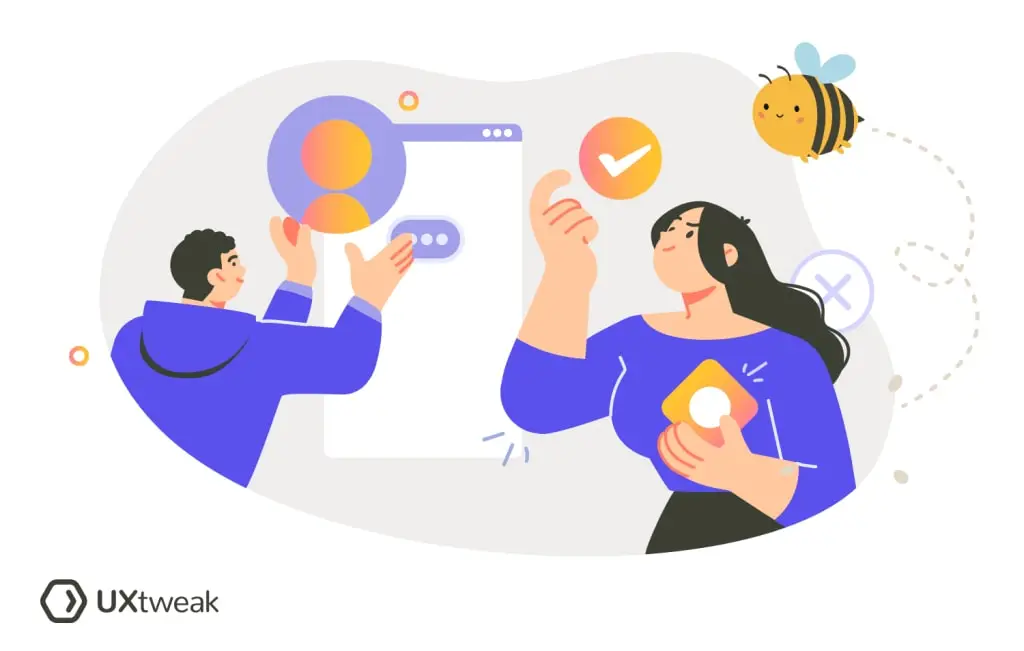
Using funnel technique for user interviews
The funnel technique is an approach to conducting user interviews, which includes starting with broad, open-ended questions and gradually narrowing down to more specific, detailed ones. This technique will help you create a more natural flow of the conversation, allowing users to express their thoughts freely before delving into more specific topics.
So, for example, let’s say you’re interviewing the users of your new project management software. You might start with a broad question like, “Can you tell me about a typical day at work?” to set the context and make them comfortable.
Then, you narrow the focus with a more specific question such as, “How do you use our product in your daily workflow?” to understand how they interact with the tool.
Finally, you dive into the details of this interaction asking something specific, like, “What challenges do you face when using the reporting feature of our product?” to uncover specific pain points and areas for improvement.
Don’t ask everything that comes to mind
While it’s tempting to ask every question that pops into your mind, this can lead to a rather chaotic conversation. We recommend you to take the time in advance to prepare an interview guide or a script and understand your priorities.
Prioritize questions based on their relevance and potential impact. Assumption mapping can be very helpful here. We can’t help but make assumptions about our users. Assumption mapping is a technique used to identify and prioritize these assumptions, letting them guide your research focus.
By mapping out your assumptions, you can determine which areas are most critical to investigate, ensuring the interview questions are targeted and purposeful.
Learn more about assumption mapping and how to use it in research:
Focus on specific scenarios
Asking users questions with specific scenarios rather that being vague, will provide you with some context-rich information about how they actually interact with the product.
To give you an example, instead of asking:
- “Are there any issues with our software?”
Ask:
- “Can you walk me through a recent situation where you encountered a problem with our software? What were you trying to accomplish, and what specifically went wrong?”
Conduct Your User Interviews with UXtweak
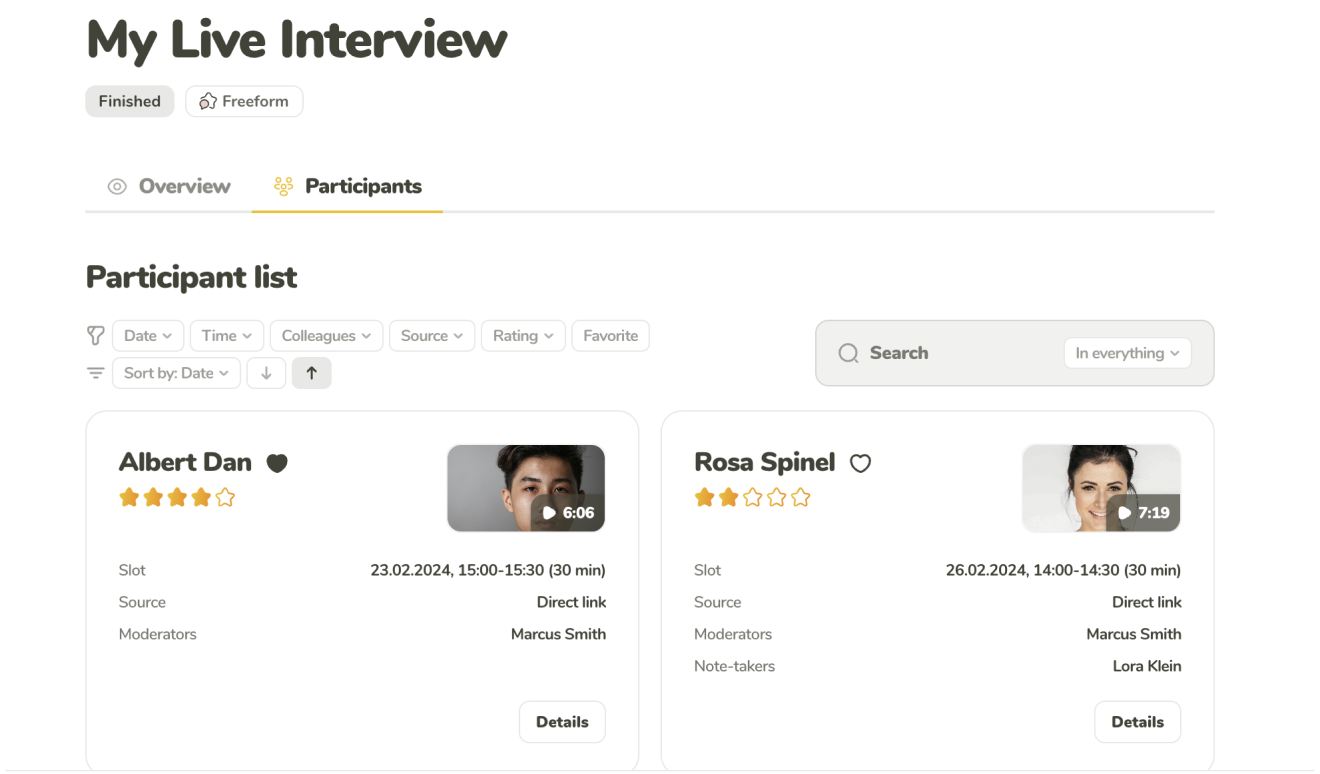
Looking to include user interviews in your research? With UXtweak’s new Live Interviews tool you can set up 1 on 1 interviews with your users in just a couple of clicks!
Seamlessly schedule, recruit, conduct, and analyze your all user interviews, or combine them with other research methods, all in one platform!
We are also enabling moderation support for all of the other study types within UXtweak app. You can conduct moderated usability tests, card sorts, and whatever else you need!
Learn more about the feature and be the first to try it!
